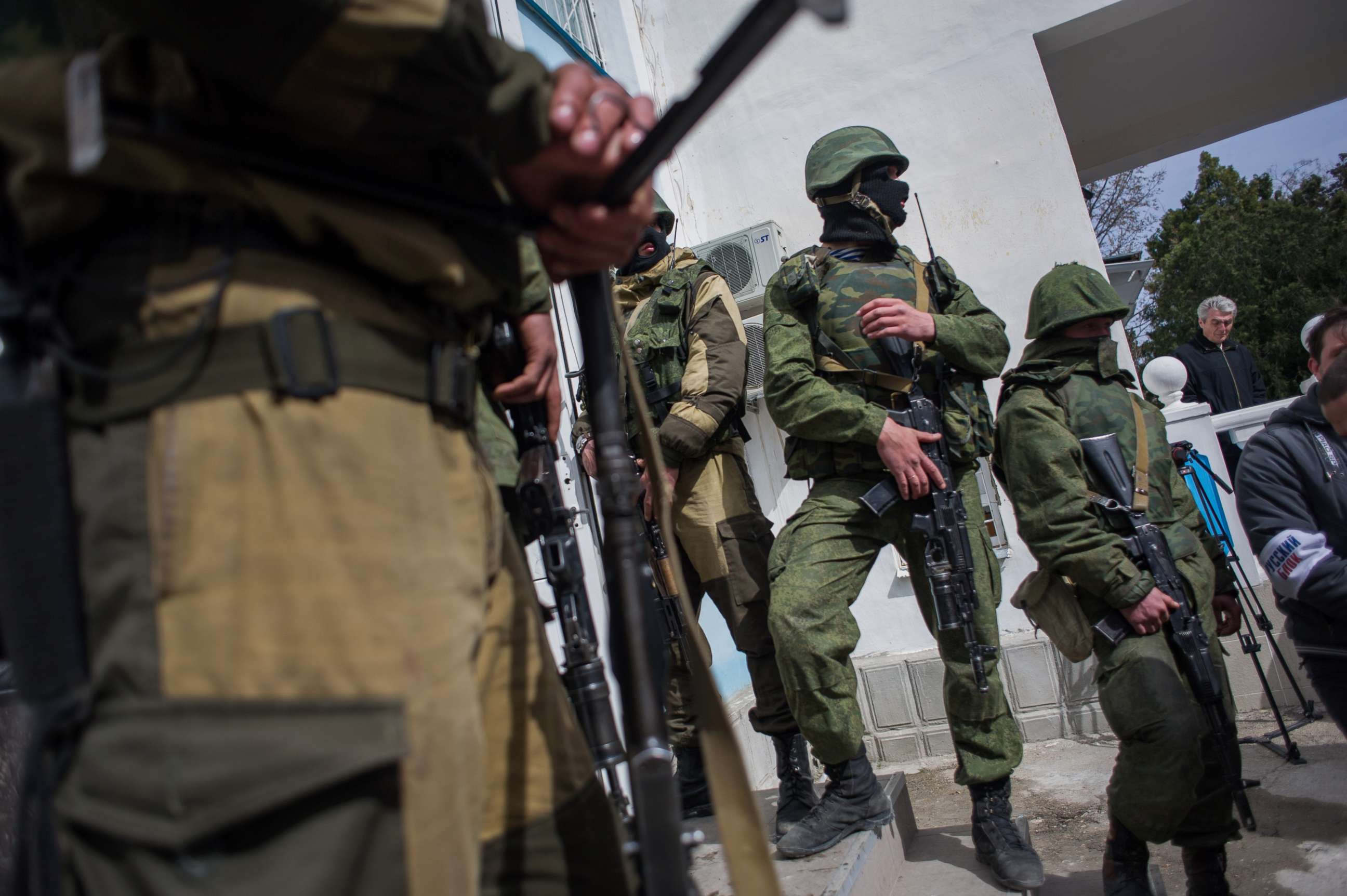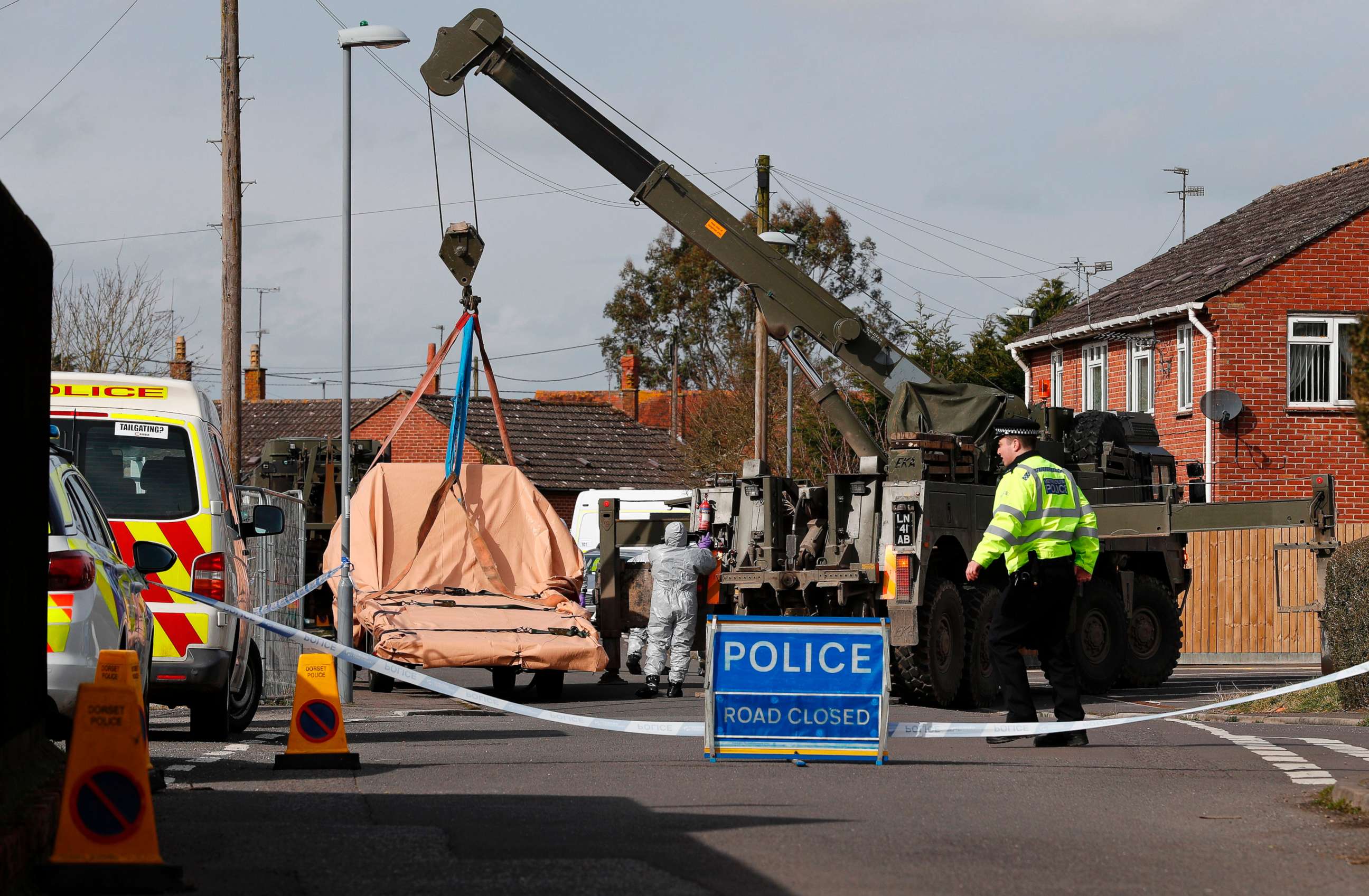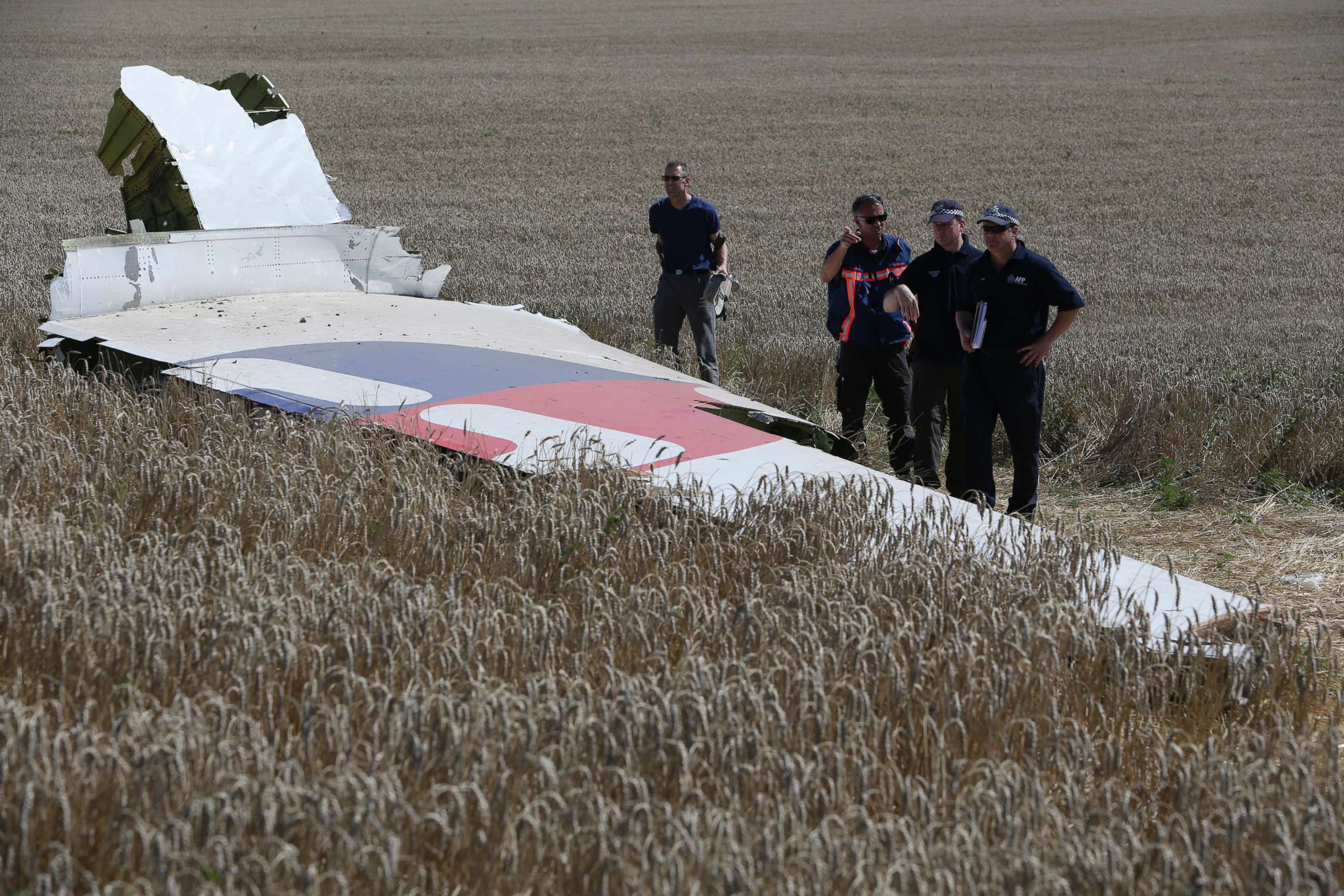A look at the Russian spy agency behind the election meddling
Russia's GRU is suspected of being behind several headline-grabbing operations.
Moscow -- When there has been a story in recent weeks about Russian intervention abroad, three letters have kept reappearing: GRU.
They stand for Glavnoe Razvedyvatel'noe Upravlenie, or Main Intelligence Directorate, the name of Russia’s chief military intelligence agency. It is one of the country’s three main spy services, alongside the SVR foreign intelligence agency and the FSB domestic security service.
The FSB, which was once headed by President Vladimir Putin, is far better known outside Russia. But it is the GRU that has been in the headlines, tangled up in many of the key incidents that have seen Russia and the United States and Europe confront one another in recent years.
The 12 Russian intelligence agents that special counsel Robert Mueller indicted this month over the hacking operations targeting the 2016 U.S. presidential election all belonged to GRU units. The indictment alleged two GRU signals units stole documents from the Democratic National Committee and candidate Hillary Clinton’s campaign and then disseminated them through fake online personas.
In Britain, authorities suspect the GRU may be behind the nerve agent poisoning of the former double agent, Sergey Skripal, himself an ex-GRU officer. In Ukraine, a GRU officer is suspected of ordering the shooting down of the Malaysian Airlines passenger flight MH-17 in 2014. And in 2017, the GRU was accused of mounting a failed coup in the tiny European country Montenegro.
All these incidents have drawn worldwide attention to the GRU, as experts note the agency seems to increasingly have been unleashed to carry out bold, sometimes reckless operations overseas in the service of a Kremlin that believes it is already engaged in a type of conflict with the West.
When most people think of Soviet or Russian intelligence, they tend to think of the KGB. But, indeed, the GRU existed throughout the Soviet Union and was responsible for much of its overseas espionage.

“In the West everything was considered KGB because that was the catchword, even though at least half of it was GRU,” said Pavel Felgengauer, a military expert in Moscow.
The GRU—since 2010 now called the GU or General Directorate but still widely referred to by its original name-- is the foreign military intelligence agency part of the General Staff of the Armed Forces of the Russian Federation. It is tasked with supplying battlefield intelligence as well as planning how to disrupt and sabotage the enemy in the event of war.
The agency also encapsulates special operations command, with battalions of elite special forces troops —- known as spetsnaz -— under its direction. These units have been fighting covertly in Syria and eastern Ukraine and it’s not impossible to occasionally spot the agency’s Batman-like logo on off-duty soldiers in Moscow, wearing sand-colored uniforms camouflaged for Syria’s deserts.
All three Russian intelligence agencies, the SVR, the FSB and the GRU, carry out foreign intelligence. But as a military organization, the GRU has a reputation among experts as bringing more of a war-fighting mentality than the SVR foreign intelligence branch, which largely operates under diplomatic cover. The GRU is seen as ready to carry out messy, violent operations, including those more likely to become public, such as spectacular assassinations.
“The GRU was basically designed to perform mass terror,” said Felgenhauer. “To kill and cause mayhem behind enemy lines. So they were preparing people that would be killing politicians and prominent people and organizing terrorist attacks in time of war or run up to war.”
But the GRU also carries out traditional intelligence operations: recruiting agents, stealing information and eavesdropping. The agency has a sprawling global network of operatives, with an agent based at most Russian embassies, usually disguised as a military attaché.
“Some of my friends were running those agents, including quite prominent ones in Western countries, in the time of the Cold War,’ said Felgenhauer. “And [the GRU] have them now. Yes, of course."
During the Cold War, some of the GRU's successes with its agents outshone the KGB.
Perhaps its greatest victory came in the 1960s, when Col. Georgi Bolshakov, an agent posing as the Washington bureau chief of the Soviet news agency TASS, struck up a rapport with Robert Kennedy, then U.S. Attorney General under his brother, President John F. Kennedy.

An enormous cache of internal documents spirited out of the Soviet Union by the KGB archivist, Vasily Mitrokhin, revealed that Bolshakov was having twice-monthly meetings with Robert Kennedy, having succeeded in convincing him that the two could act as a back channel to allow direct communication with the then-Soviet president, Nikita Khrushev.
“Forgetting that he was dealing with an experienced intelligence professional who had been instructed to cultivate him, the president’s brother became convinced that ‘an authentic friendship grew’ between him and Bolshakov,” Mitrokhin and his co-author, Christopher Andrew, wrote in their book “The Sword and the Shield.”
Related Stories
As Mitrokhin and Andrew wrote, such access proved to be of little use to the GRU, which nonetheless produced wildly inaccurate assessments of American policy, including almost catastrophically inaccurate reports during the Cuban Missile Crisis.
The end of the Soviet Union upended Russian intelligence. The KGB was broken up into separate agencies, including the FSB. The GRU survived the collapse but still shrank and, amid a major modernization of the military, in recent years the service had seen heavy cut-backs, prompting some experts to suggest it was out of favor.
Putin’s invasion of Crimea in 2014, however, changed that, and the escalating confrontation with the West has suddenly made the GRU -— designed to wage unconventional conflicts -— very relevant.
In Crimea, the GRU played a crucial role, as Russian troops seized the peninsula bloodlessly, supported by GRU planning and special forces, as well as covert operations that included coordinating demonstrations to cover the invasion.
Locals that welcomed the annexation at the time had no doubts the agents were present: in a café in Crimea’s capital Simferopol that I used to frequent, I remember an only half-joking sign appearing on the tables, offering a discount for GRU officers.
In the subsequent war in eastern Ukraine, GRU special forces helped seize administrative buildings and the agency gathered and armed the militias and mercenaries used to form the backbone of the rebel fighters there. Since then, GRU officers have been identified as overseeing the civilian and military leaderships of the rebel republics.
“This is seriously GRU, their traditional strengths,” Mark Galeotti, an expert on Russia’s intelligence agencies and senior non-resident fellow at the Prague Institute of International Relations, told ABC News by phone.
"It's much more on who you rely on for coups and counter-coups, operations in Badlands, and dealing with gangsters," Galeotti said. "The idea of actually operating within sort of insurgencies and war zones is very much the GRU’s thing."


Not that the GRU’s aggressive operations have always gone off as planned.
Bellingcat, a group that carries out open-source investigations into the Ukraine conflict, identified a GRU officer as having ordered the firing of the missile that brought down flight MH-17, mistaking it for a Ukrainian military jet.
In Britain, Skripal and his daughter survived the poisoning attempt and, instead, a British woman died after inadvertently handling the nerve agent. The attempted coup in Montenegro likewise ended in failure.
The U.S. has responded to the GRU's new adventures by sanctioning it. The GRU’s head, Igor Korobov and three of his deputies were sanctioned by Barack Obama's administration in December 2016 for the election interference. In March, the U.S. Treasury Department imposed new sanctions on the GRU.
Russia has denied it is involved in any other incidents the GRU is accused of being involved in. And the GRU's involvement is stronger in some cases than others. UK police have yet to publicly accuse the agency of being behind the poisoning attempt on Skripal and experts speculate it could be a joint service operation, though suspicion has so far fallen on the GRU.
Felgenhauer has said the GRU's current notoriety may also be misleading, with the GRU blamed for operations done by the other services.
"I know for a fact that quite a number of Cold War Russian spies were actually GRU but in the West they were all branded KGB," he said. "And looks like now we are going the other way round and everyone’s branded GRU as the bad guys."
Galeotti believes that the GRU will continue to be emboldened -- with the Kremlin persuaded that it is already engaged in a new type of 21st-century conflict with the West, to which it feels the agency's brand of aggressive unconventional operations is well-suited.
“Regarding itself at war, it is unleashing its spooks, empowering a GRU culture that is willing to take chances and break rules,” Galeotti wrote in an article for the Dutch site, Raamoprusland.nl this month.
"The sudden prominence of the agency tells us something about the state of Russian-Western relations," he wrote.



